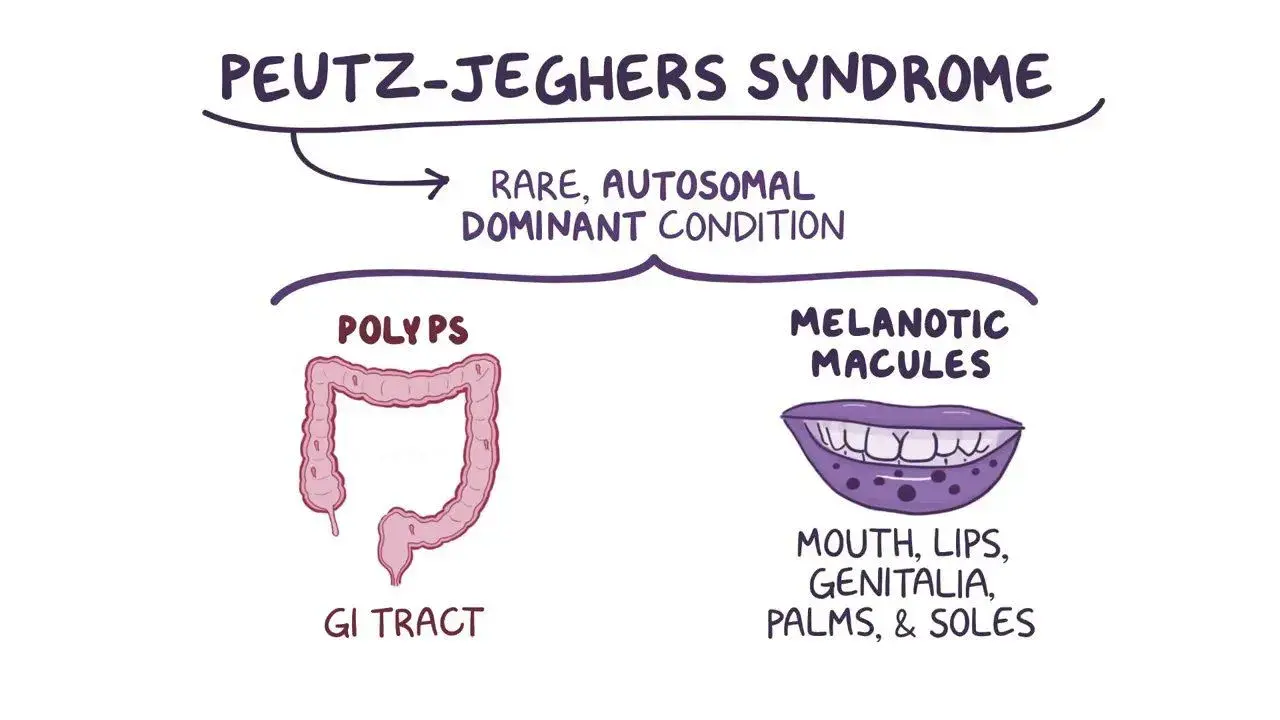Being told you or your child has Peutz-Jeghers Syndrome (PJS) can feel overwhelming. The name is unfamiliar. The words "polyps," "genetic mutation," and "cancer risk" sound scary. And often, there are more questions than answers.
This blog is here to make sense of it all using clear, compassionate language, real stories, and reliable facts. Whether you’ve just been diagnosed or have been living with PJS for years, you’ll find helpful guidance and reassurance here.

For many people, the first sign of PJS appears early in lifetiny dark-blue or brown spots on the lips, fingers, toes, or around the mouth. These pigmented marks are harmless but often the first visible clue.
Later, some may experience:
- Stomach pain
- Digestive bleeding
- Chronic fatigue
Medical tests often reveal polyps in the stomach or intestines benign growths that can cause discomfort or complications.
PJS is caused by a mutation in a gene called STK11 a gene that usually helps control how cells grow. When it doesn't work properly:
- Non-cancerous polyps can grow in the GI tract
- There is a higher risk of certain cancers over time
But let’s be clear:
Having PJS does not mean you will get cancer.
Many people with PJS live full, healthy lives with proper care and monitoring.
PJS isn’t something you can ignore. But with routine checkups, complications can often be prevented or caught early.
Monitoring usually includes:
- Regular endoscopies and colonoscopies
- Imaging scans for the pancreas and other organs
- Cancer screenings tailored by age and gender
It might feel like a lot but this proactive approach can be life saving.
Living with a genetic condition like PJS affects more than just the body. Many people feel anxiety, fear, or frustration. Questions like:
Will I pass this on to my kids?
Will I need surgery again?
How do I talk to others about this?
You’re not alone in asking these. Mental health support, therapy, and peer groups can make a big difference. Your emotional well-being matters just as much as your physical health.
This website, www.peutz-jeghers.com, isn’t just about medical facts. It’s about:
- Clear explanations of the condition
- Practical advice for appointments, tests, and daily life
- Stories from real people living with PJS
- Links to specialists, resources, and support networks
And coming soon: forums, Q&As, downloadable guides, and more.
Peutz-Jeghers Syndrome is:
- Rare, but understood
- Genetic, but manageable
- Serious, but not hopeless
- Challenging, but not limiting
With the right care, a trusted medical team, and a strong support system, you can live a full, vibrant life.
If you or someone you love has PJS:
- Speak up ask questions, find support
- Keep track of appointments and screenings
- Take care of your mental and physical health
- And most of all: don’t let fear run the show
You’re more than your diagnosis. You’re part of a growing, empowered community.